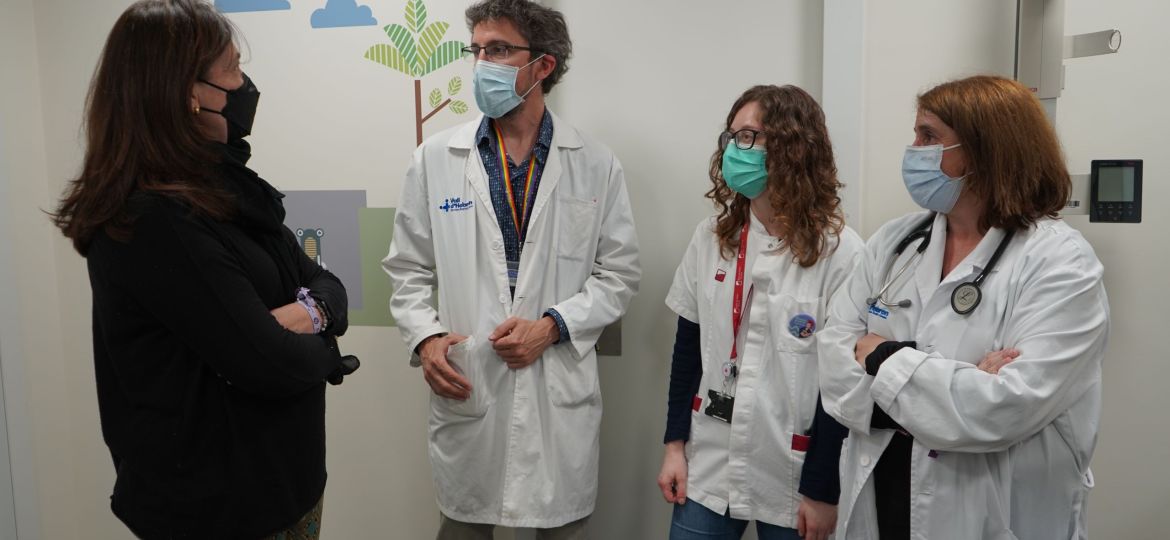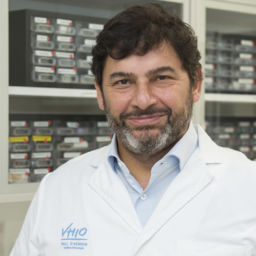
- CAR T-cell therapy consists of targeted immune system cell modification to attack the cells that produce the antibodies causing the disorder
- It is the first international multi-centre clinical trial to analyse the safety and effect of this treatment for an autoimmune disease
- This innovative therapy could open the door to new options for patients with lupus who do not respond to the usual therapies
Lupus is a chronic autoimmune disease caused by an attack from the body’s immune system, which can damage any organ in the body. Most patients suffer from tiredness and weight loss, along with frequent other symptoms, such as joint pain, rash, haematological complications and kidney problems. Drugs currently exist to regulate the immune system and reduce inflammation, but they have to be taken continually and in some cases are ineffective. Vall d’Hebron has thus included its first patient in a pioneering study to test the safety and effect of CAR T-cell immunotherapy in people with lupus. Involved in this international phase Ib/IIa clinical trial, sponsored by Novartis, is the Vall d’Hebron Campus, with the Vall d’Hebron University Hospital, the Vall d’Hebron Research Institute (VHIR) and Vall d’Hebron Institute of Oncology (VHIO), in collaboration with the Catalan Banc de Sang i Teixits (Blood and Tissue Bank, BST).
CAR T-cell therapy is an innovative treatment which, until now, has been developed to treat certain kinds of tumour and blood diseases, such as lymphomas and leukaemias. It is based on extracting immune system cells from patients, in this case T cells, which are genetically modified to express a chimeric antigen receptor (CAR) and then infused again into the patient. In the case of tumours, this change enables the modified cells to attack the tumour cells. According to Dr Pere Barba, director of the CAR-T Program at the Haematology Department at the Vall d’Hebron University Hospital, researcher at the with Experimental Haematology group at VHIO: “In lupus, the CAR T-cells eliminate patients’ B cells, which are responsible for producing the antibodies that cause lupus.” Dr. Mònica Linares, a haematologist at the BST, states that “This therapy reboots the patient’s immune system to attack the cells we want to target.”
A pilot test with five patients with lupus conducted in Germany at the end of 2022 showed positive results for CAR T-cell therapy. “In the clinical trial we are starting now, we want to show that using CAR-T cells to eliminate the CD19 B cells improves symptoms, especially if the antibodies causing the disease are eliminated.” highlights Dr. Josefina Cortés, an internist and rheumatologist specialising in Lupus at the Vall d’Hebron University Hospital Rheumatology Department, head of the Lupus Unit in the Rheumatology group at VHIR and principal investigator on the project. She adds that, “If we obtain good results, we can offer new therapeutic options for patients who do not respond to the usual treatments and even for the remission of the disease.”
This is the first international multi-centre clinical trial to analyse the safety and effect of the treatment for an autoimmune disease, opening the door to new therapies for other diseases of this type.
The phase Ib/IIa trial is being conducted internationally on 12 patients aged 18 to 65 with severe lupus that has proven unresponsive to the usual treatments. All of them will have immune cells extracted to create targeted CAR-T cells which will then be re-infused. Patients will then receive follow-up for two years. Centres in Spain, France, Germany and Australia are participating in the study. The participating hospitals in Spain are Vall d’Hebron and the Gregorio Marañón University General Hospital in Madrid.
CAR T-cell therapy in Vall d’Hebron
The Vall d’Hebron University Hospital is the hospital conducting the most CAR-T cell immunotherapy in Spain. Since 2019, nearly 300 patients have been treated, especially unresponsive patients with B- and T-cell lymphomas and acute lymphoblastic leukaemia. It is the only centre in Catalonia authorised to use the treatment in children and adults. It also carries out research to broaden the therapy to patients with other oncological diseases and, recently, non-oncological diseases











